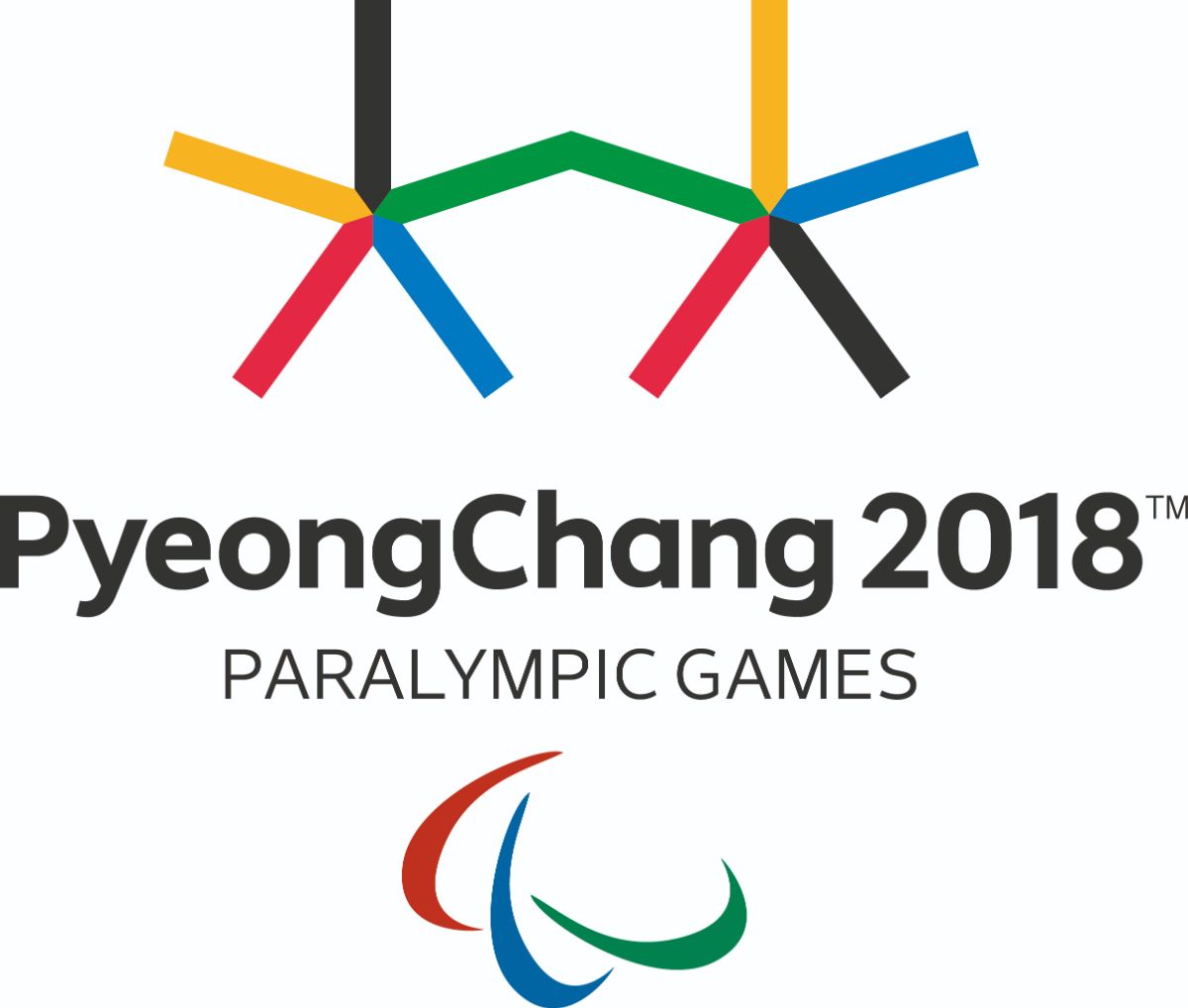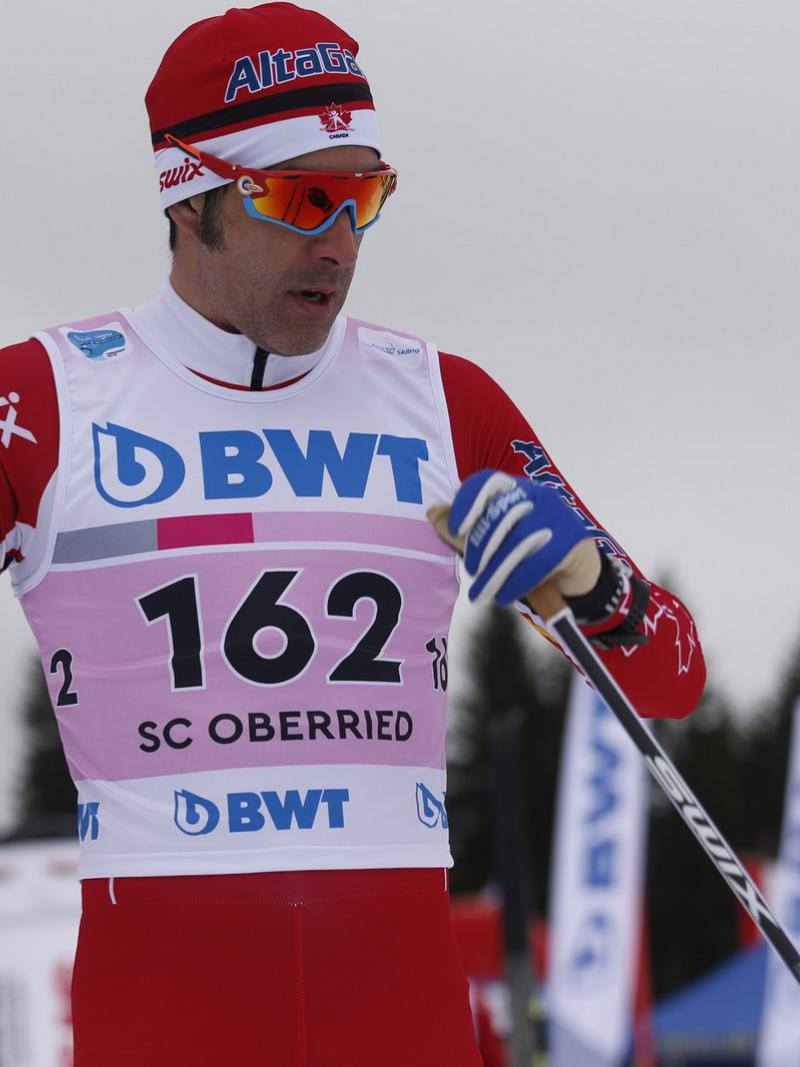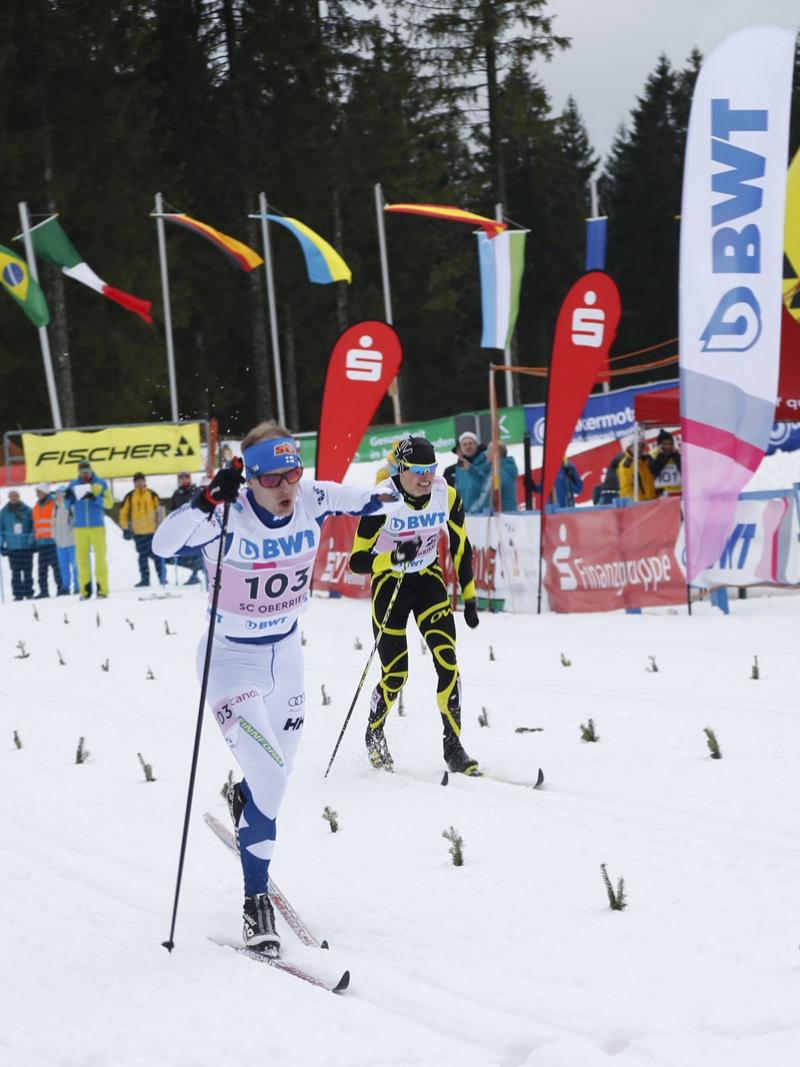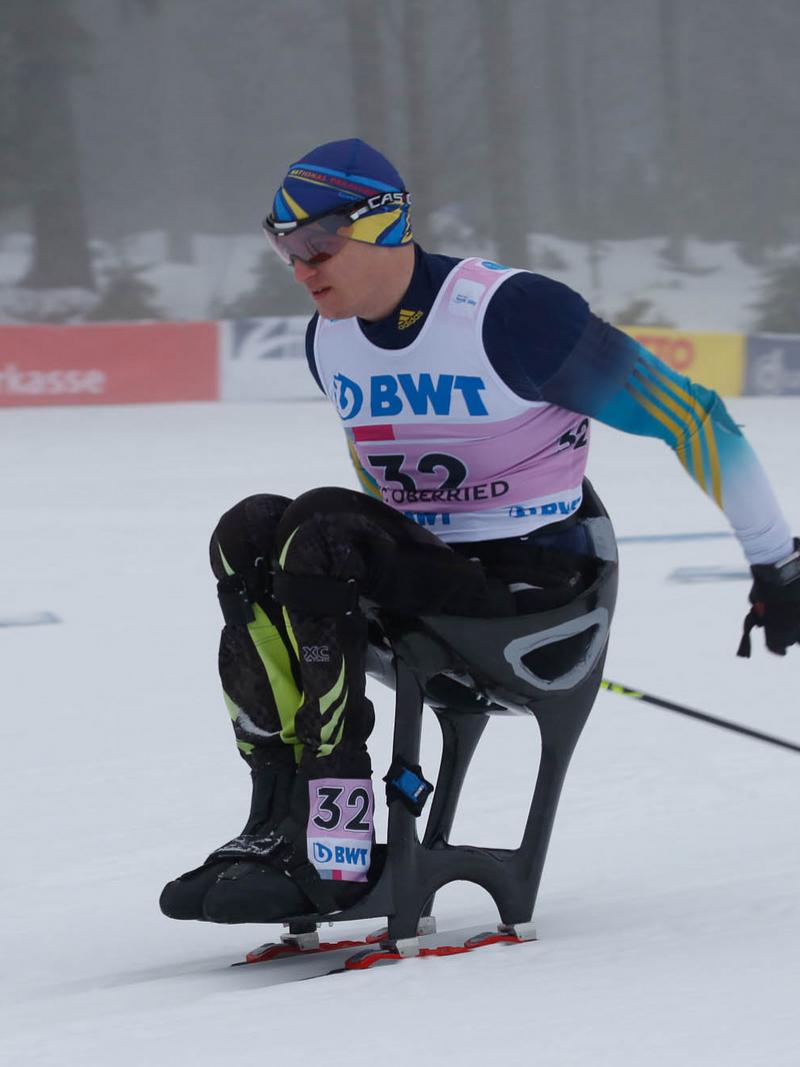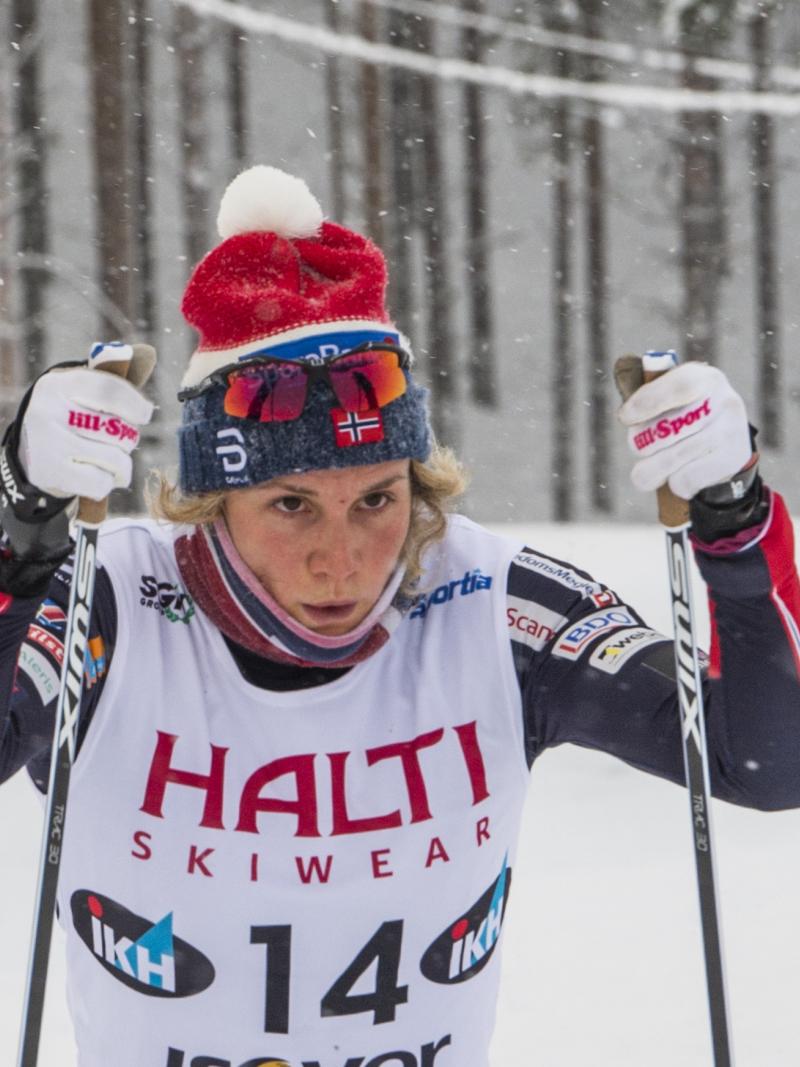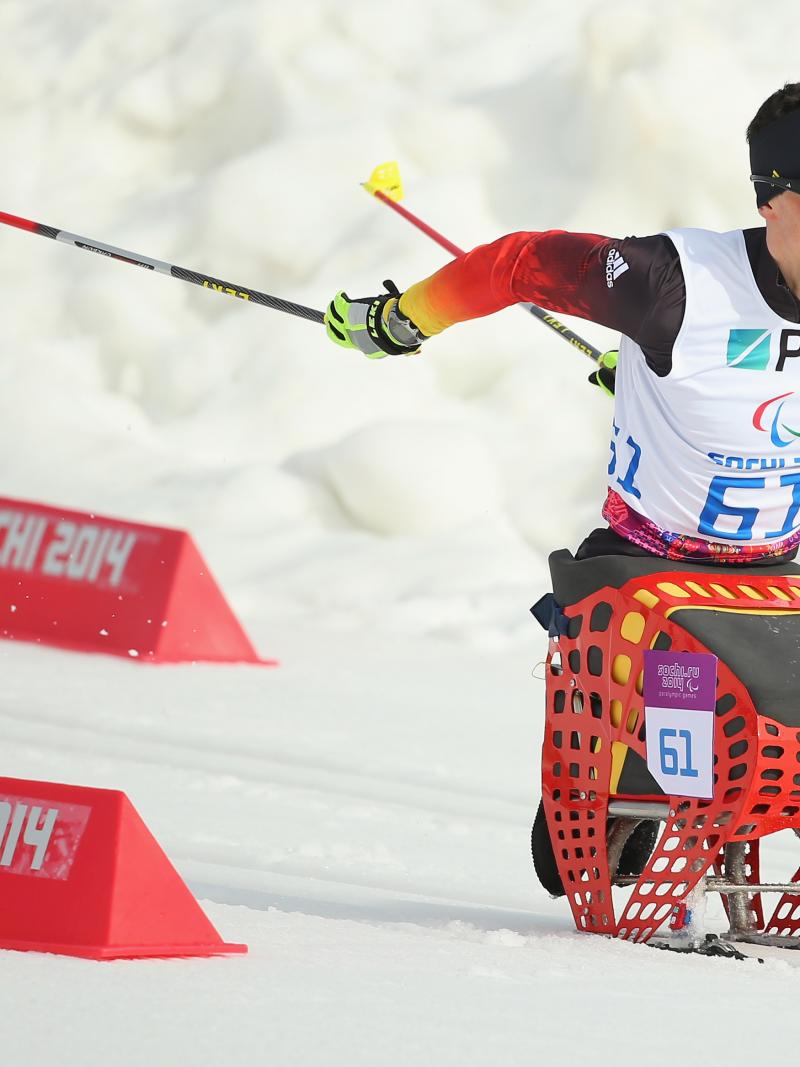Workout Wednesday: Sweden’s Zebastian Modin
Cross-country world champion talks about his training regime as he goes for first Paralympic gold 07 Feb 2018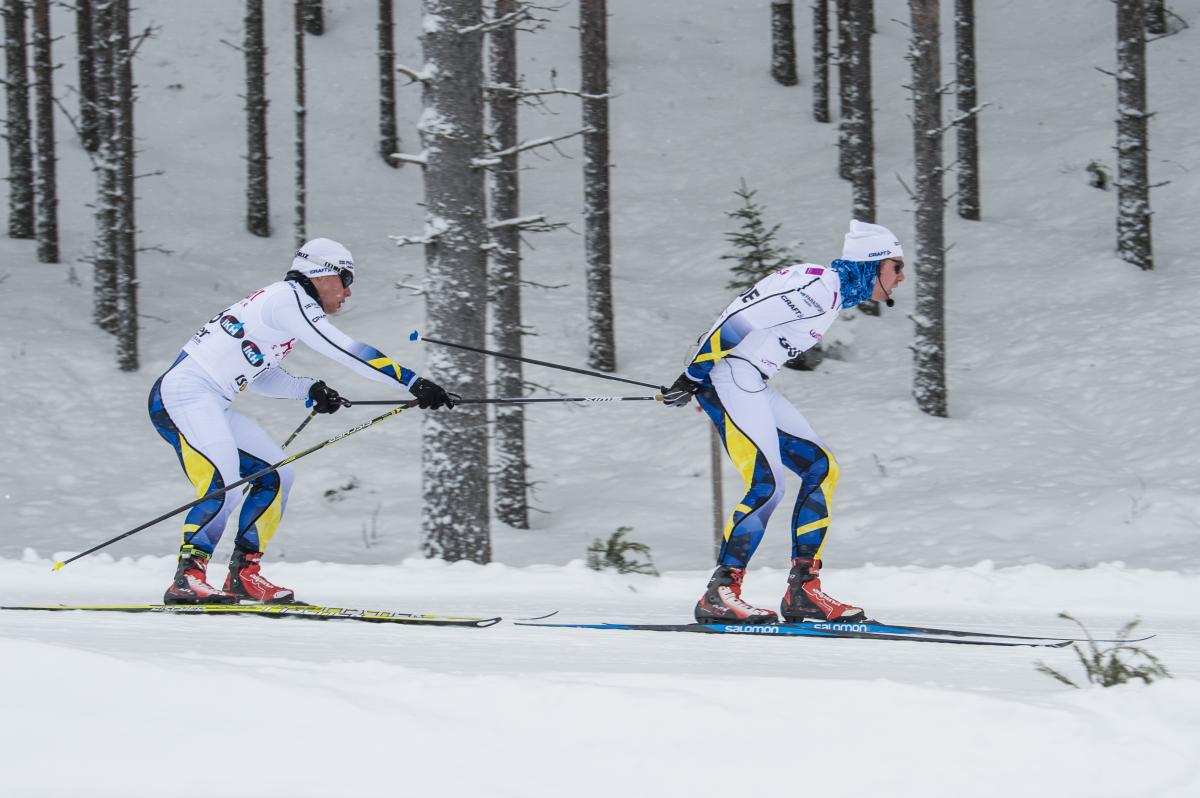
Zebastian Modin is targeting cross-country gold at PyeongChang 2018
“I don’t have that much for recovery in between the sessions. For example now, I train in the morning and then I have lunch and then I have some recovery and maybe I sleep. Then the training again and then it’s evening. In the evening maybe I do something with some friends or just chill out at home."
Only 23 years old, but already on the verge of his third Paralympic Games; Zebastian Modin has seen his training regime evolve greatly over the years.
The Swedish cross-country skier started off in the sport by training with his friends, many of whom went on to become competitive able-bodied skiers, and trying to outrace them.
He picked up extra training tips when he attended a secondary school that specialised in cross-country skiing.
Then came the preparations for his first major competitions, including the 2010 Paralympic Winter Games where Modin took an unexpected bronze in the visually impaired 1km sprint despite being the youngest competitor from any nation at the Games.
Modin went on to win three more cross-country medals at Sochi 2014.
Now headed to his third Games, Modin has had to make many changes to his training. He overcame surgery on his legs, found a new guide and adjusted his workouts to accommodate his university studies as a business student.
“Right now it’s lots of training. In the summer too. Now I have a break from university, but I’ve been studying. This is my third year studying. It’s impaired sight, but lots of schoolwork to do and then the training.
“I don’t have that much for recovery in between the sessions. For example now, I train in the morning and then I have lunch and then I have some recovery and maybe I sleep. Then the training again and then it’s evening. In the evening maybe I do something with some friends or just chill out at home.
“When I’m studying I also train every day, but I don’t have that recovery in between the sessions and sometimes maybe I can have just one session. I can adapt the training a bit to the studies, but not too much.
“It’s why I took a break in the studies since November because I wanna have totally full focus on the Games.”
In the summer, Modin trained up to 25 hours per week to prepare for the gruelling World Cup and Paralympic season.
“It’s mostly roller skiing and a bit of running, even though I’ve not done that much running in the last two years [be]cause I had the surgery for my legs two and a half years ago and it’s been tough.
“Everything is great, but my running is still not that good yet, so mostly I do roller skiing and some strength training in the gym, like twice a week.”
Modin missed almost two full seasons after the 2014 Paralympic Winter Games because of the surgery as well as difficulties in finding a new guide. He finally got “lucky” and teamed up with Johannes Andersson, a rare skier who could match his training hours.
“I train mostly with one guide. We train around six times a week when we’re at home and then when we’re at camp we train all the sessions together. And then I train with some other guides some sessions during the week while he trains by his own. It’s lots of days away from home, and there are camps, races. It’s not just training. I think six times a week of training is not a big problem for many of these guys, but it’s the effort around it.”
At the last Paralympic Games, Modin competed in both biathlon and cross-country, but at PyeongChang 2018 he decided only to race in the first biathlon event but then focus on cross-country, which is his specialty. This strategy has also affected his training.
“I would really like to someday be a good biathlete but I’m not there yet. I don’t train much in the shooting range and that’s, of course, the key. I’m too much of a cross-country skier. I focus on skiing all the time when it comes to training. If I wanna get better in biathlon, I have to become more of a biathlete around the training.”
The Paralympic Winter Games take place in PyeongChang, South Korea from 9-18 March. Tickets can be purchased here.





